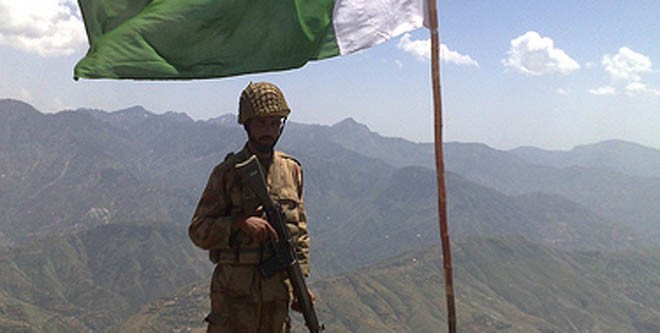
Majid Nizami’s thoughts will live for decades to come

The thought of Majid Nizami is of tremendous significance in more ways than one. It is the sole prerogative of history to determine the greatness of any mortal being but what is absolutely certain in the case of Majid Nizami is that he was an immensely successful person.
Nizami transformed Urdu daily Nawa-e-Waqt Lahore, which he inherited from his brother, into an empire with The Nation and Waqt TV as its major components; he was able to do that by running his organisation like a typical (media) tycoon.
One cannot dispute the fact that he was the chief architect of Pakistan’s national discourse which is no mean achievement.
He successfully capitalised on the opportunity that the early demise of his elder brother, Hameed Nizami, afforded him from the 1960s onwards. As a bulwark against any shift in Pak-India relations, poker-faced and usually smile-less Nizami acted like an immovable stumbling block. With people like late Meim Sheen, Z.A. Suleri, Mujeeb-ur-Rehman Shami, Qureshi brothers (Altaf Hassan and Ijaz Hassan), Dr Rafique Ahmed, Munawar Mirza and Sarfraz Mirza, Nizami worked with phenomenal success to spawn and promote the two-nation theory, which obviously became a sine qua non of Pakistan’s national discourse.
Such ideology-driven stalwarts became hard to come by in the last couple of decades, simply because the newspapers owned by Nizami were poor paymasters. Thus myriad columnists and reporters started with Nawa-e-Waqt but then were forced to join other media groups.
The fact remains that there has never been any dearth of such ideologues in Pakistani journalism at any point of time. Hindu-bashing is an industry, and many have tried hard to excel in that particular field. Nizami set himself a task of providing an extremely conducive environment to such pen-pushers.
The ideological foundations, the way they are being professed and projected these days in Urdu media and textbooks, are the legacy of a few individuals and Nizami’s name shines luminously among them. According to him, the nationalist ideology that provided Pakistan its raison d’etre was predicated solely on the antipathic feelings towards (Hindu) India. India was hate-worthy because it represented Hindus which was the polar opposite to Muslims. He did not budge from that position even though Pakistan itself had a sizable Hindu population in Sindh and Balochistan.
The view of history that Nizami and other people of his ilk subscribed to precluded the modern methods of conflict resolution. In the everyday conversation, the symbols of sword and missile were used profusely. As an admirer of Majid Nizami, late Prof. Munir ud Din Chughtai used to emphasise to his students that the only possibility for a peaceful coexistence between India and Pakistan is if Pakistan conquers India.
Similarly Prof Munawar Mirza, while addressing the students at GC University’s Bokhari Auditorium, concluded his lecture by saying "sons and daughters, the fight in the subcontinent will continue until the last Hindu is alive in that region". He, along with many of his cronies, stressed that the point of difference between the two major communities living in India was religion Islam.
Thus Pakistani nationalism was defined with Islam as its abiding feature. But they did not know what variant of Islam were they talking about? Similarly, how would religion of Islam correspond to the idea of Pakistan as a nation-state, in a sense of the Western political category? That probably was the reason that Nawa-e-Waqt did not take any decisive position when the major cities of Pakistan were engulfed with anti-Ahmedi movement in 1953.
Nevertheless, the foundation of Pakistani nationhood was steeped in religion which was used by these people as an exclusionary tool. They had no realisation that the religion which they advocated so vehemently as the basis for Pakistani nationalism would subsequently be deployed against the state of Pakistan itself. I don’t think they had ever reviewed their position when Tehreek-i-Taliban Pakistan virtually wanted to obliterated the very state of Pakistan.
As an icon of right wing Pakistani nationalism, Majid Nizami’s thoughts will live for decades to come. The demands for provincial autonomy, the promotion and dissemination of regional languages at the educational institutions, the existence of different sub-cultures were the shenanigans of unpatriotic people who had been working to undermine the solidarity and sovereignty of Pakistan.
All said and done, in the death of Majid Nizami, an icon of two-nation theory has "passed from nature to eternity". However, his demise does not in any way symbolise the weakening of the two-nation theory or the ideology of Pakistan because, despite all the abstraction and ambivalence, that mode of thinking is destined to go from strength to strength.